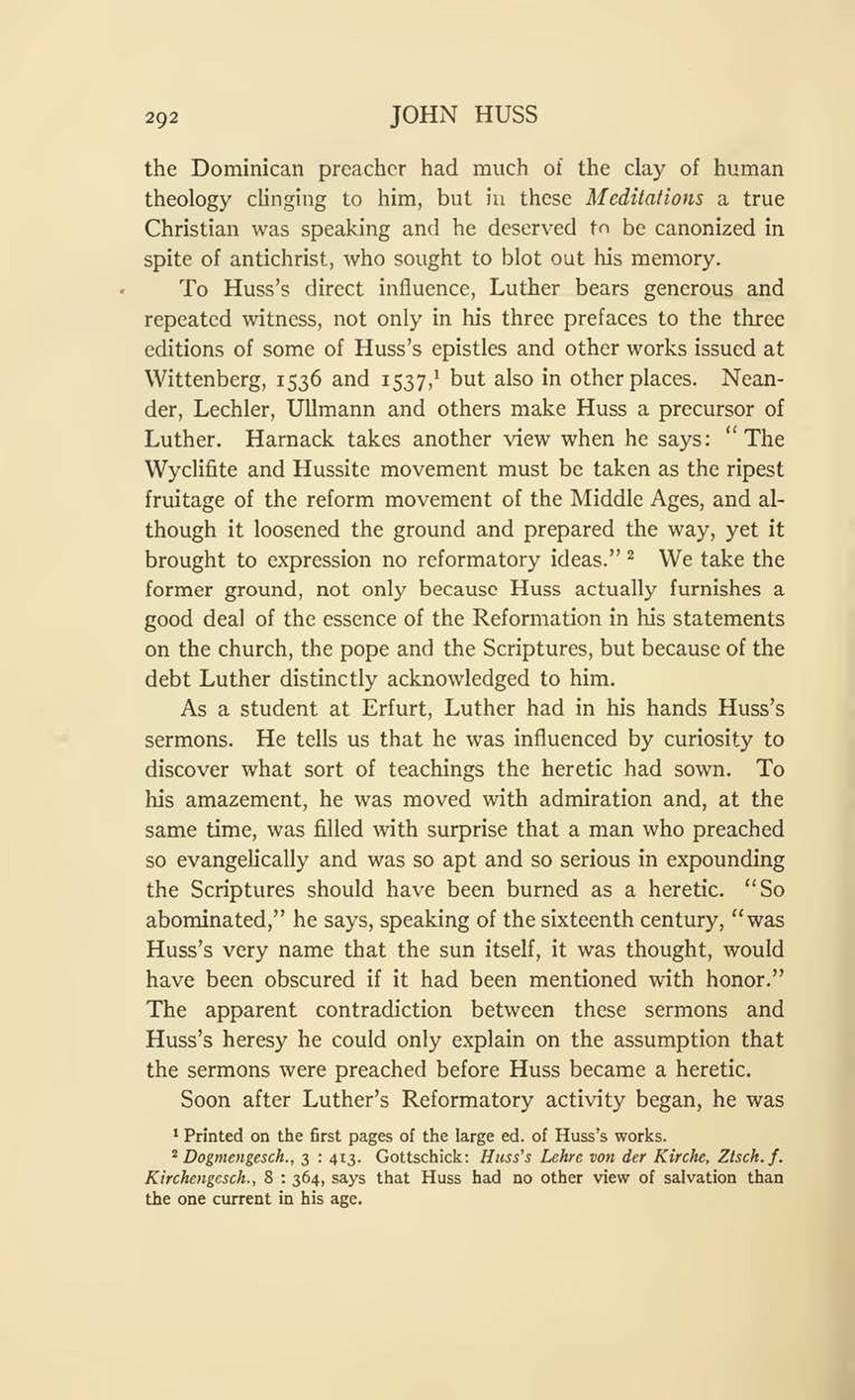the Dominican preacher had much of the clay of human theology clinging to him, but in these Meditations a true Christian was speaking and he deserved to be canonized in spite of antichrist, who sought to blot out his memory.
To Huss’s direct influence, Luther bears generous and repeated witness, not only in his three prefaces to the three editions of some of Huss’s epistles and other works issued at Wittenberg, 1536 and 1537,[1] but also in other places. Neander, Lechler, Ullmann and others make Huss a precursor of Luther. Harnack takes another view when he says: The Wyclifite and Hussite movement must be taken as the ripest fruitage of the reform movement of the Middle Ages, and although it loosened the ground and prepared the way, yet it brought to expression no reformatory ideas.”[2] We take the former ground, not only because Huss actually furnishes a good deal of the essence of the Reformation in his statements on the church, the pope and the Scriptures, but because of the debt Luther distinctly acknowledged to him.
As a student at Erfurt, Luther had in his hands Huss’s sermons. He tells us that he was influenced by curiosity to discover what sort of teachings the heretic had sown. Το his amazement, he was moved with admiration and, at the same time, was filled with surprise that a man who preached so evangelically and was so apt and so serious in expounding the Scriptures should have been burned as a heretic. “So abominated,” he says, speaking of the sixteenth century, “was Huss’s very name that the sun itself, it was thought, would have been obscured if it had been mentioned with honor.” The apparent contradiction between these sermons and Huss’s heresy he could only explain on the assumption that the sermons were preached before Huss became a heretic.
Soon after Luther’s Reformatory activity began, he was
